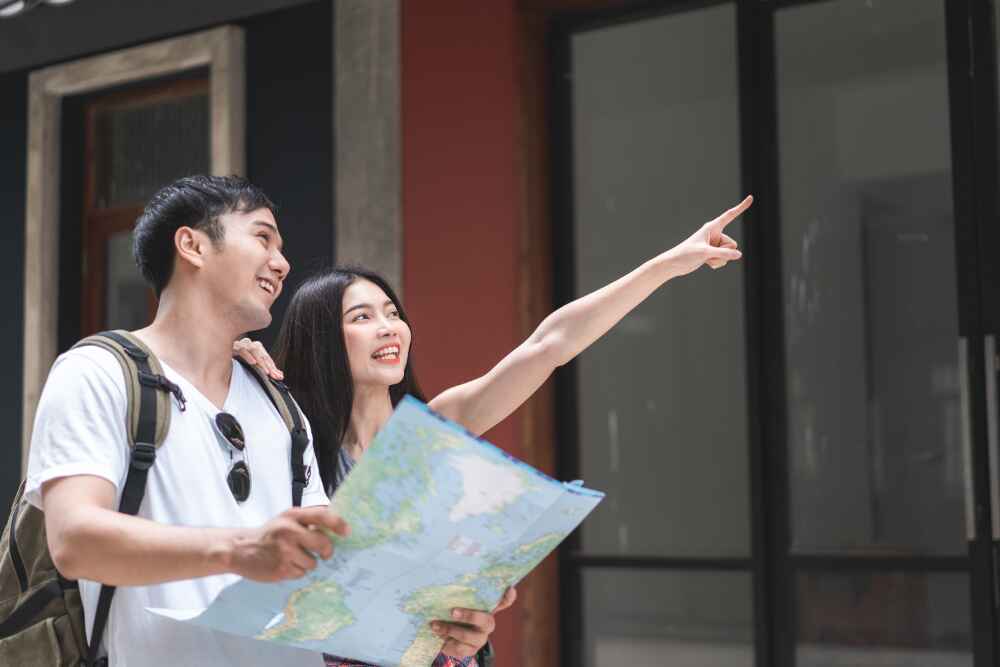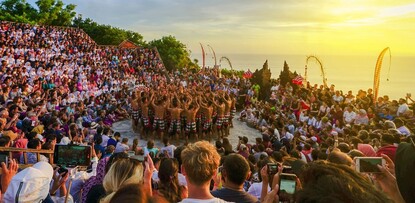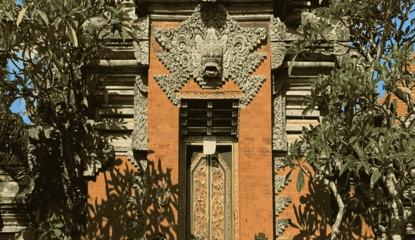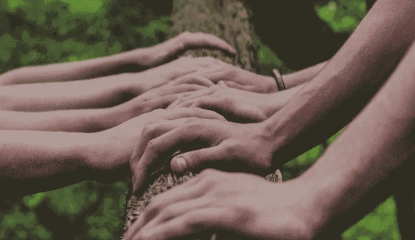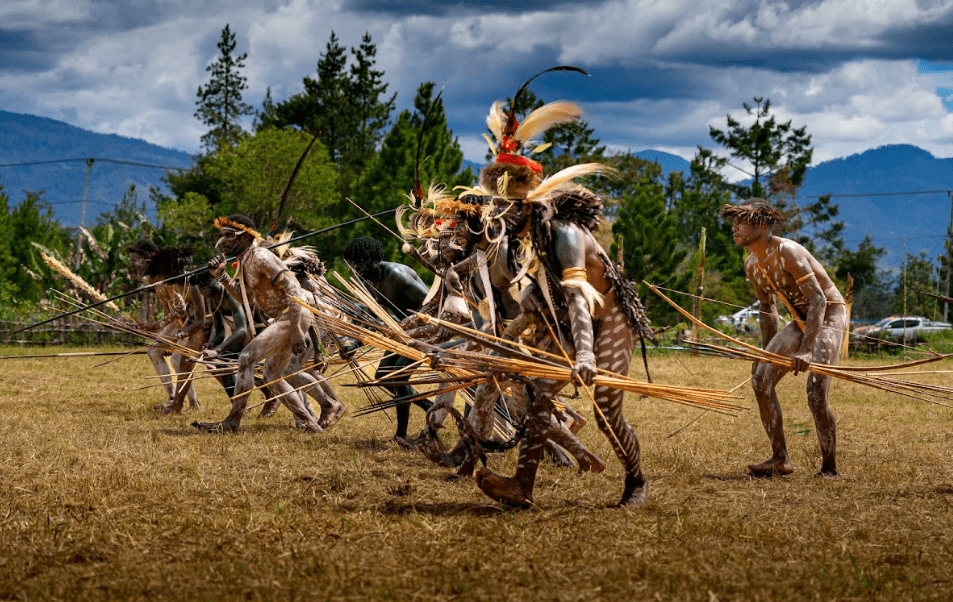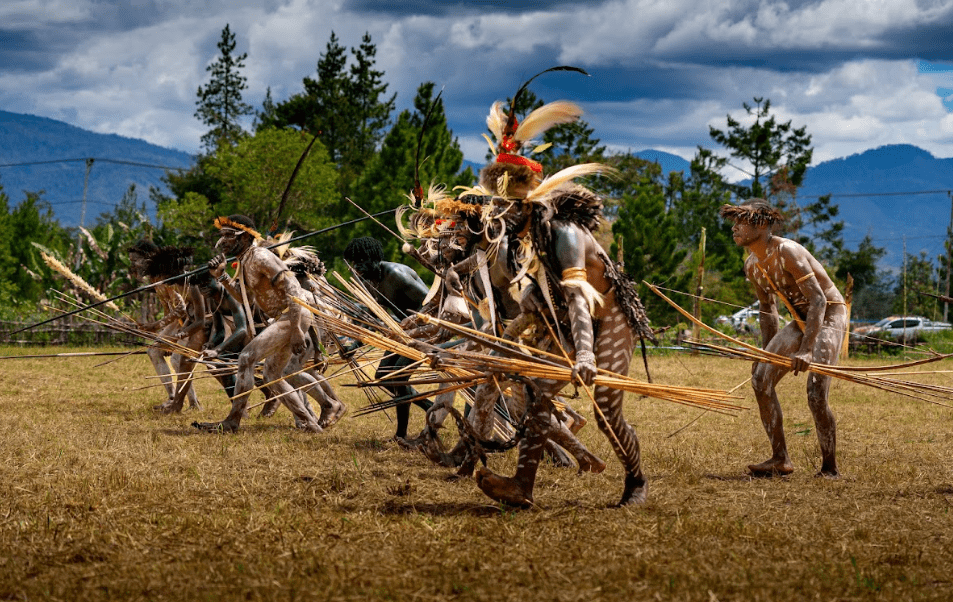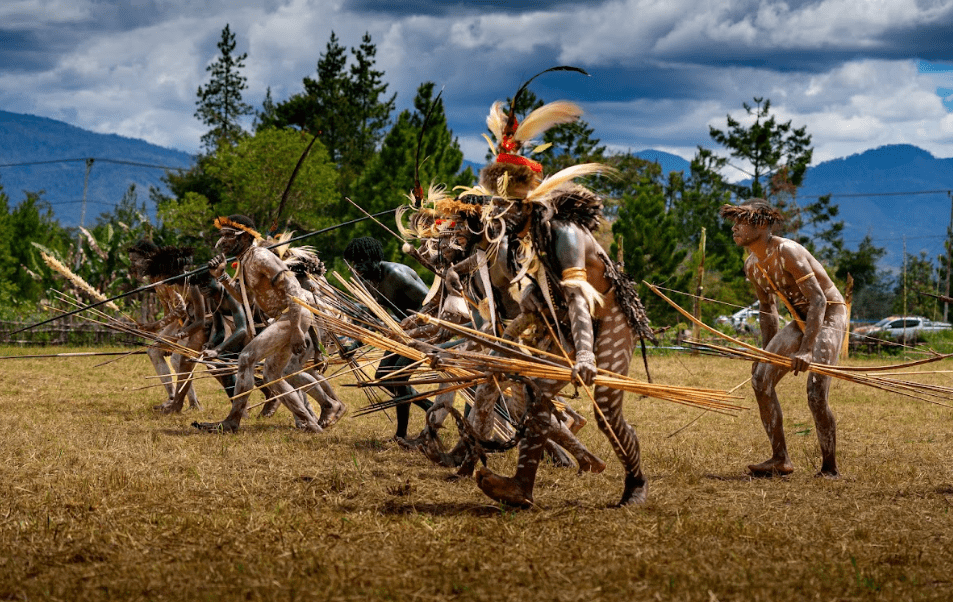The Wala tradition is a form of traditional art originating from West Papua, specifically from the indigenous tribes in the region. Wala is an oral tradition conveyed through dance movements, depicting stories of origins, migration, and the life journey of the Matbat community, as well as significant events they have experienced. This tradition holds sacred value, both in its learning process and its purposes, such as in various customary ceremonies.
Distinctive Features
The Wala tradition is characterized by its movements and choreography. The dance is performed in groups with dynamic, spirited movements accompanied by strong foot stomps. Its movement patterns involve a combination of forward and backward steps, jumps, and circular formations, symbolizing harmony and togetherness.
Costumes
Wala dancers wear traditional attire from West Papua adorned with natural elements, such as tree fibers, sago leaves, or feathers of the bird-of-paradise. These costumes are paired with colorful headpieces and body paint made from natural dyes, creating an appearance that reflects the beauty of Papuan culture.
Musical Accompaniment
Music in the Wala tradition uses traditional instruments like tifa drums, flutes, and other wind instruments. The music's rhythm is energetic and repetitive, as if breathing life into the dance. This musical accompaniment not only sets the tempo for the movements but also evokes a sacred and profound atmosphere throughout the performance.
Philosophical Meaning
- Teaches values of unity and solidarity among community members.
- Symbolizes a harmonious relationship between humans and nature.
- Serves as a medium for delivering ancestral messages and character education to the younger generation.
The Role of Wala Tradition in West Papuan Society
- Strengthening cultural identity: Helps communities preserve their heritage and ancestral traditions.
- As a unifying medium: Strengthens social ties among diverse community members.
- Moral and value education: Provides a way to convey moral messages and life philosophies to children and younger generations.
Uniqueness of the Wala Tradition
The uniqueness of this tradition lies in the blend of graceful movements, distinctive traditional costumes, and meaningful, powerful musical accompaniment. The Wala tradition represents the uniqueness of local wisdom in West Papua, focusing on spiritual connections, environmental harmony, and togetherness in daily life.


